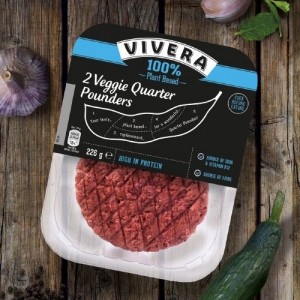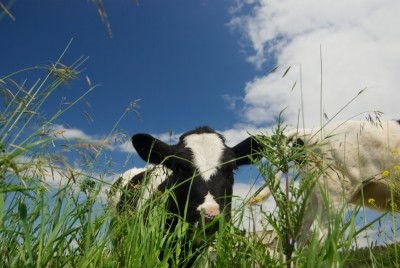Affordable and scalable: 3F Bio's ‘first-of-its-kind’ mycoprotein biorefinery
The project, known as ‘Plenitude’, plans to build a biorefinery that will produce proteins for food from low-cost, sustainable feed stocks. It will integrate two ‘established processes’ into a single biorefinery producing bioethanol and food-grade protein.
The process takes a proportion of the cereal crop that will feed the biorefinery to create a feedstock for the fermentation process that produces 3F Bio’s trade-marked Abunda mycoprotein. “The process uses large scale fermentation to grow protein using the sugars found in grains such as wheat and maize,” Laird elaborated.
The facility will be joint-funded by 3F Bio and a €17m grant from the Bio Based Industries Joint Undertaking (BBI JU), under the European Union’s Horizon 2020 research and innovation programme.
Cross sector collaboration for bio-based consumer products
Plenitude is being developed alongside lead industrial partner Alcogroup and will be based in the city of Ghent, in Belgium.
It brings together ten ‘key players’ in the bioeconomy. Alongside 3F Bio’s expertise in biotech and Alcogroup’s experience in primary processing, ingredients supplier International Flavors & Fragrances (IFF) will provide insight into product development and applications, while Wageningen University is the primary research partner. These will join three end-users covering food categories: lab meat innovator Mosa Meat, plant-based brand Vivera and meat company APB Foods.
Laird said that the 10 partners are synergistic and deliver different skill-sets that will help bring products to market. 3F Bio's business model focuses on providing Abunda mycoprotein to its food sector customers, who then sell products such as burgers, sausages or chicken-style items under their own brands.
"The BBI JU both champions and enables the full value chain concept, and the ten partners that are involved in Plenitude all bring complimentary skills,” he explained.
The collaboration between the biorefinery operator, food producers and technology providers will create new cross-sector interconnections, new bio-based value chains, and new bio-based consumer products, the company predicted.
Growing global demand for plant protein
With initial output capacity of 16k tonnes per annum, 3F Bio said the project will increase the availability of sustainable, high-quality food protein. This will help meet growing global demand, the company suggested.
The global consumption of meat and meat-analogue protein currently totals around 500 million tonnes per year, with less than 1% derived from non-animal sources. The Food and Agriculture Organization of the United Nations (FAO) predicts that the demand for non-animal proteins may increase to account for 10-20% of the growing total demand, which would create a need for 100-200 million tonnes of plant protein by 2050. Concerns over the negative impact of animal production on climate change have spurred this shift.
“The addition of 16k tonnes is significant but can be seen as both a big number and a small number,” Laired noted. “We see it as a very relevant first step.”
“It is significant in that it creates a first of its kind integrated process, and we hope that this proves a model which can then be scaled and repeated. In the macro or global context of the total protein market the addition of 16k tonnes only represents a small fraction of the annual growth in protein demand, but it will confirm the overall concept which can scale to tens of millions of tonnes per annum.”
3F Bio is already working with potential customers to confirm the current level of market interest. “Through that process we have seen that there is definite demand for volume in excess of 16k tonnes, and within our plans there is scope that the first site would have potential to step up to 50k tonnes,” Laird revealed.
‘To be sustainable it has to be affordable’
Based on a target to produce 1 million tonnes of protein by 2030, it is estimated that this could equate to a reduction of 5 million tonnes of carbon emissions, 3F Bio said.
According to the company’s CEO, increasing availability of low-carbon plant-based protein is just one part of the story. For plant-based options to be truly sustainable they also have to be affordable and scalable, Laird explained.
“Most of the plant-based solutions will deliver benefits in terms of lower carbon, lower land and lower water use. In order to make an impact we also believe this has to be affordable, and that the solution has to be scalable,” he told FoodNavigator.
“We are focussed on fermentation and mycoprotein because we have proven that biotech and growing protein using sustainable low-cost sugars provides a scalable and efficient solution.”
Laird suggested that this investment will have a double impact, helping meet growing demand for high-quality protein while also tackling sustainability issues.
“It is vitally important that we find sustainable and scalable solutions to meet the demand for high-quality affordable protein. Consumers are increasingly responding to a range of drivers including health, ethics, and the environment, which means the demand for plant-based solutions is rising rapidly and will continue to do so.
“Global experts in governments and bodies such as the UN and the FAO all consistently highlight the need to reduce the reliance on protein from livestock. From an environmental perspective this is one of the crises of our time.“




























